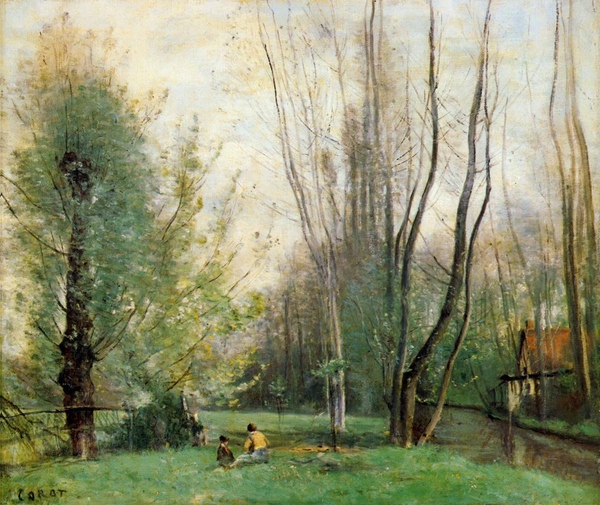
Then sing, ye birds, sing, sing a joyous song!
And let the young lambs bound
As to the tabor’s sound!
We in thought will join your throng,
Ye that pipe and ye that play,
Ye that through your hearts to-day
Feel the gladness of the May!
What though the radiance which was once so bright
Be now for ever taken from my sight,
Though nothing can bring back the hour
Of splendour in the grass, of glory in the flower;
We will grieve not, rather find
Strength in what remains behind;
In the primal sympathy
Which having been must ever be;
In the soothing thoughts that spring
Out of human suffering;
In the faith that looks through death,
In years that bring the philosophic mind.
And O ye Fountains, Meadows, Hills, and Groves,
Forebode not any severing of our loves!
Yet in my heart of hearts I feel your might;
I only have relinquish’d one delight
To live beneath your more habitual sway.
I love the brooks which down their channels fret,
Even more than when I tripp’d lightly as they;
The innocent brightness of a new-born Day
Is lovely yet;
The clouds that gather round the setting sun
Do take a sober colouring from an eye
That hath kept watch o’er man’s mortality;
Another race hath been, and other palms are won.
Thanks to the human heart by which we live,
Thanks to its tenderness, its joys, and fears,
To me the meanest flower that blows can give
Thoughts that do often lie too deep for tears.
—William Wordsworth, Intimations of Immortality from Recollections of Early Childhood from Poems in Two Volumes (1807)
These lines from one of Wordsworth’s most imposing poems recall the lost magic of childhood in a metaphorical spring, they seem a perfect way to greet the return of the green fuse. Listen to the first movement of Ludwig van Beethoven’s “Spring” sonata, op. 24, in this performance by Igor Gruppman, violin and Ilya Itin, piano from the 2006 Miami International Piano Festival:


